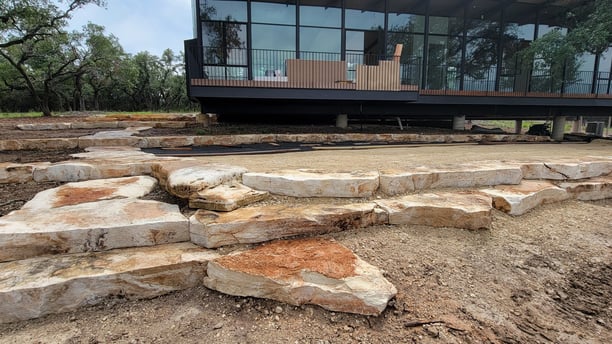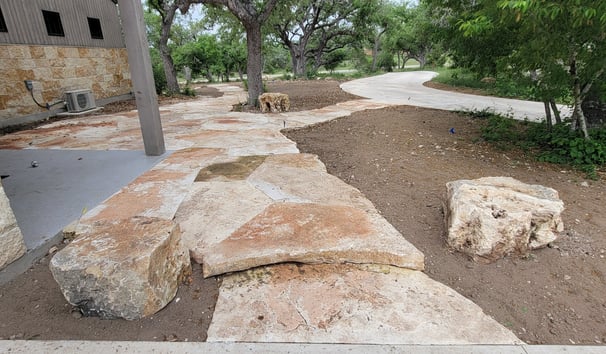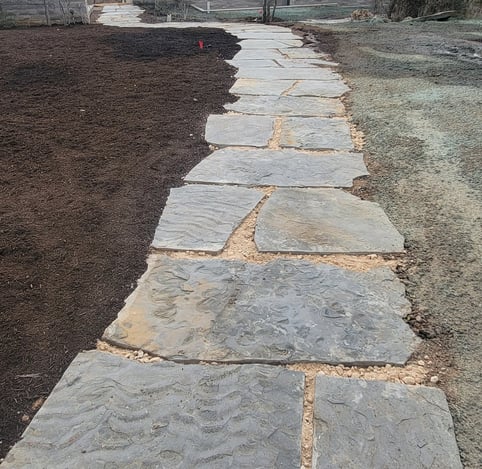Natural vs. Custom Dirt for Hardscaping: Which is the Better Choice?
Hardscaping, the practice of using non-living elements to enhance outdoor spaces, is a crucial aspect of landscape design. It involves the use of materials like stone, concrete, brick, and metal to create structures such as patios, walkways, retaining walls, decks, and pergolas. The choice of material can significantly impact the durability, maintenance, aesthetics, and cost of the project. In this article, we delve into the differences between using natural and manufactured soil in hardscaping projects.
2 min read


Natural Soil in Hardscaping
Natural soil is a popular choice for hardscaping due to its aesthetic appeal and durability. It offers a rustic look that can complement the natural environment and add personality to your outdoor space.
One of the main advantages of natural soil is its uniqueness. Each piece of natural stone has its own distinct color, texture, and shape, which can add character and depth to your hardscape. However, these irregularities can also present challenges during installation. You may have to deal with bumps, ridges, varying heights, and weights.
Despite its beauty and durability, natural soil has some downsides. It can be quite expensive, especially if the stone is rare or needs to be sourced from far away. Additionally, natural soil may require more maintenance than other materials to keep it looking its best.
Choosing between natural and manufactured soil for your hardscaping project depends on several factors, including your budget, maintenance preferences, and desired aesthetic. Natural soil offers a unique, rustic look but can be expensive and challenging to install. On the other hand, manufactured soil is consistent, customizable, and can be engineered to meet specific needs, but it may lack the organic richness of natural soil.
Remember, the best landscapes strike a balance between hardscaping and soft scaping elements. Whether you choose natural or manufactured soil, ensure it complements the living elements in your landscape to create a harmonious and functional outdoor space.
Manufactured Soil in Hardscaping
Manufactured soil is another common choice for hardscaping. It’s a versatile material that can be customized to fit any design or style.
Manufactured soil is known for its consistency and predictability. It is engineered to have specific properties, such as improved drainage or increased nutrient content. This makes it a practical choice for hardscaping projects where specific soil characteristics are desired.
However, manufactured soil has its drawbacks. It can lack the organic matter and beneficial microorganisms found in natural soil. This can lead to less healthy plant growth if not properly managed. Additionally, the process of manufacturing soil can be energy-intensive and contribute to environmental degradation.




Our Mission
Dedicated team creating unique hardscape designs and bring your vision to life!
Contact
Services
© 2024. All rights reserved.


